Are you looking to smoothly navigate the process of reassigning employees within your organization? Crafting a thoughtful reassignment notice can set the right tone and help employees understand the changes ahead. By clearly communicating the reasons for the reassignment and what it entails, you can foster a sense of transparency and support during this transition. Curious to learn how to create an effective letter template for your employee reassignment notices? Read on for our comprehensive guide!
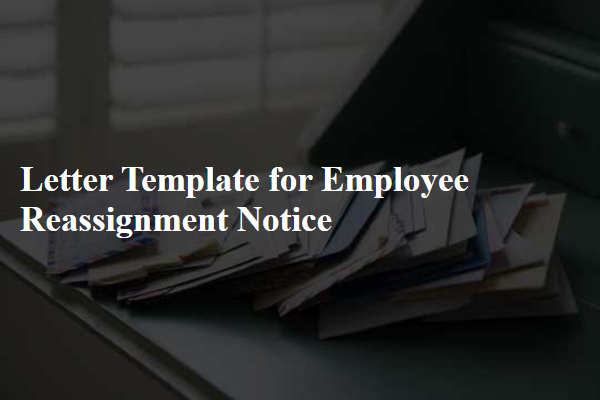
Clear Subject Line
Employee reassignment notices play a crucial role in organizational communication, ensuring that team members are informed about changes in roles or responsibilities. A well-defined subject line, such as "Employee Reassignment Notification - [Employee Name]," effectively captures attention and provides clarity. This notification typically includes essential details about the new position, such as the department, reporting structure, and effective date, which can facilitate a smooth transition. Furthermore, addressing the employee's past contributions while highlighting the opportunities within the new role can enhance motivation and foster a positive attitude towards the change. Additionally, providing contact information for any questions or clarifications ensures employees feel supported during their transition period.
Employee's Full Name and Current Position
Employee's Full Name, currently serving as a Marketing Specialist at ABC Corporation, is being reassigned to the role of Digital Marketing Manager. This transition, effective November 1, 2023, accommodates the company's ongoing expansion within the digital domain, particularly with initiatives focusing on online engagement and e-commerce strategies. This new position will involve overseeing a team of five, managing SEO campaigns, and enhancing social media outreach efforts to align with market trends and consumer behavior. ABC Corporation aims to leverage Employee's strengths in strategic thinking and innovative digital solutions throughout this reassignment.
New Position and Responsibilities
Employee reassignment to a new position, such as a Project Manager, often accompanies changes in responsibilities and reporting structure. The new role may include overseeing project timelines, managing team members, and liaising with clients. This transition may also involve relocating to a main office in San Francisco, enabling closer collaboration with other departments and stakeholders. Effective communication of performance expectations in the new role is crucial, ensuring the employee understands specific goals and deliverables tied to new projects, which may ultimately impact the entire organization's efficiency and output.
Effective Date of Reassignment
Employee reassignment notices inform individuals about changes in their job roles or departments within an organization. The effective date of reassignment signifies when the transition will take place, often marking a significant shift in responsibilities. For example, a reassignment could be due to organizational restructuring, new project assignments, or strategic alignment. Clear communication regarding the effective date helps employees prepare for the upcoming changes and contributes to smooth operational continuity within the workplace. Notices typically also include information about any new reporting structures or expectations associated with the reassignment.
Contact Information for Follow-up Questions
A letter template for employee reassignment notice typically includes relevant contact information for follow-up queries. For clarity, including names, titles, phone numbers, and email addresses of the human resources representative or department manager can be crucial. This ensures employees have a clear channel for seeking additional details or addressing concerns that arise from the reassignment. For instance, providing a direct line to the HR department (e.g., +1 (555) 123-4567) or an email address (e.g., hr@company.com) enhances communication and facilitates a smoother transition for the affected employee. Clear instructions on how to reach out can foster a supportive work environment during changes.

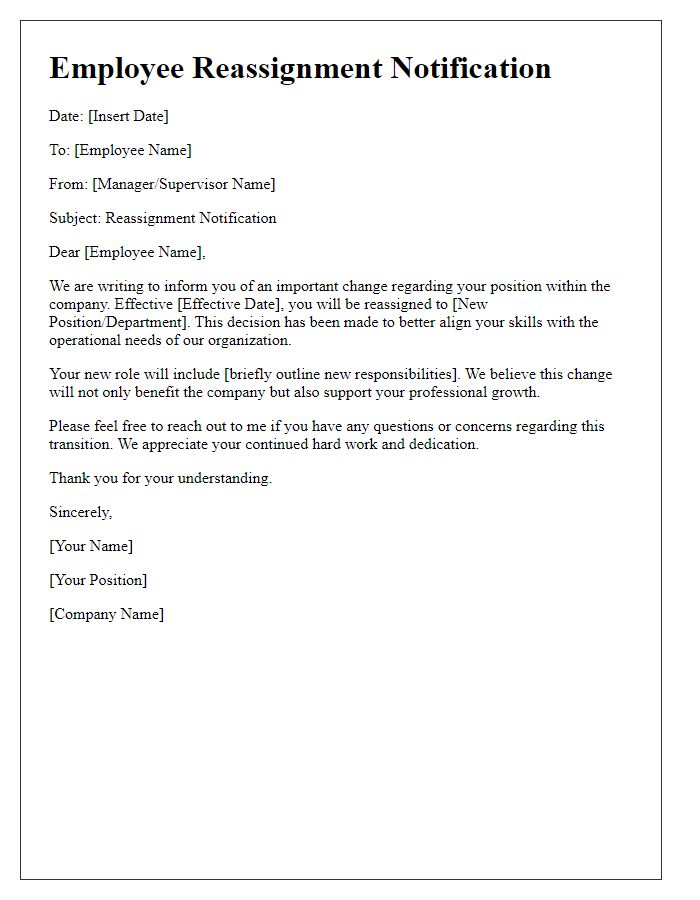
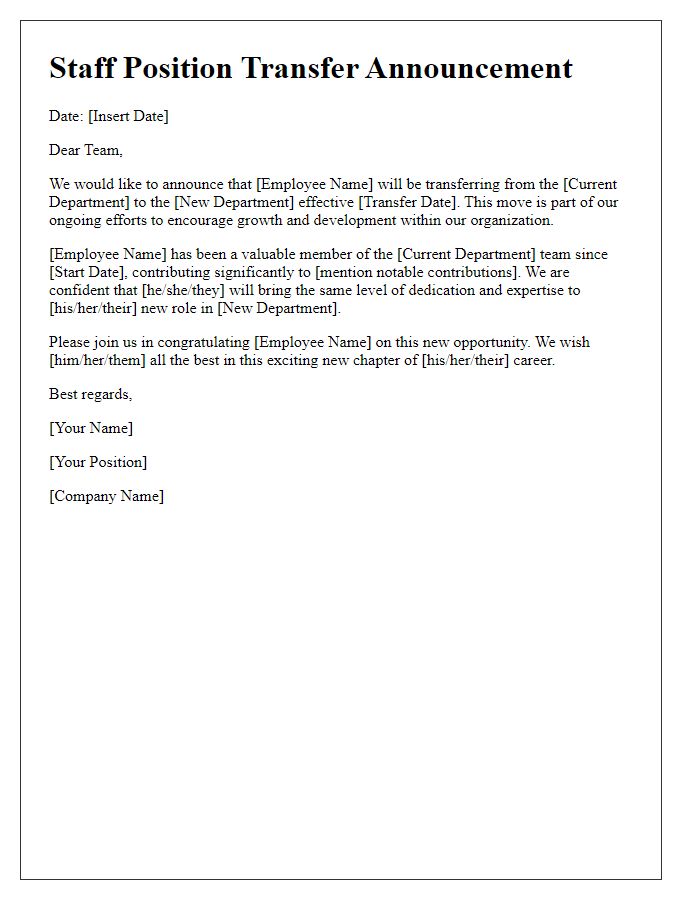
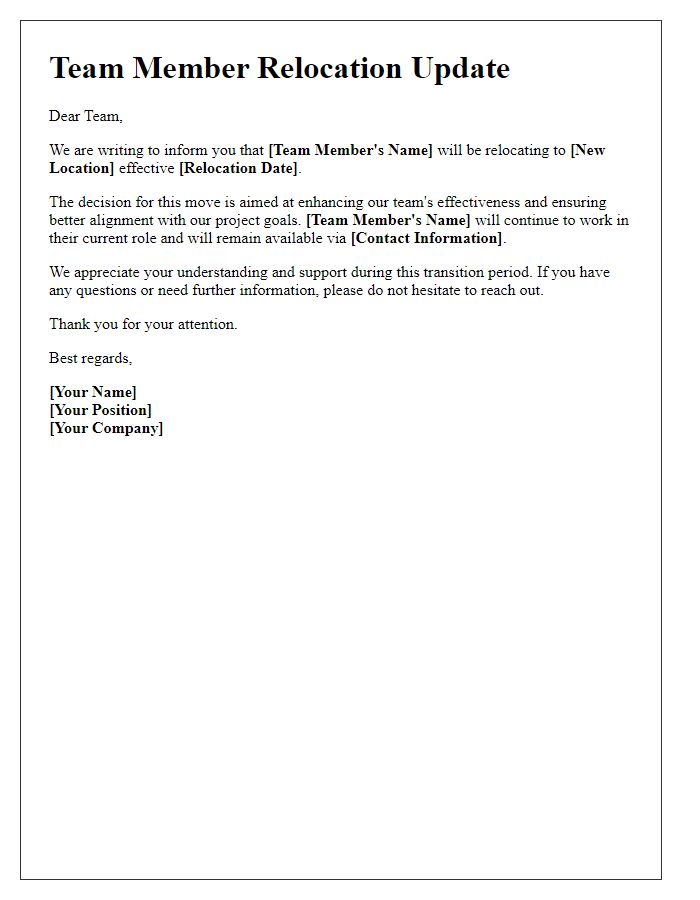
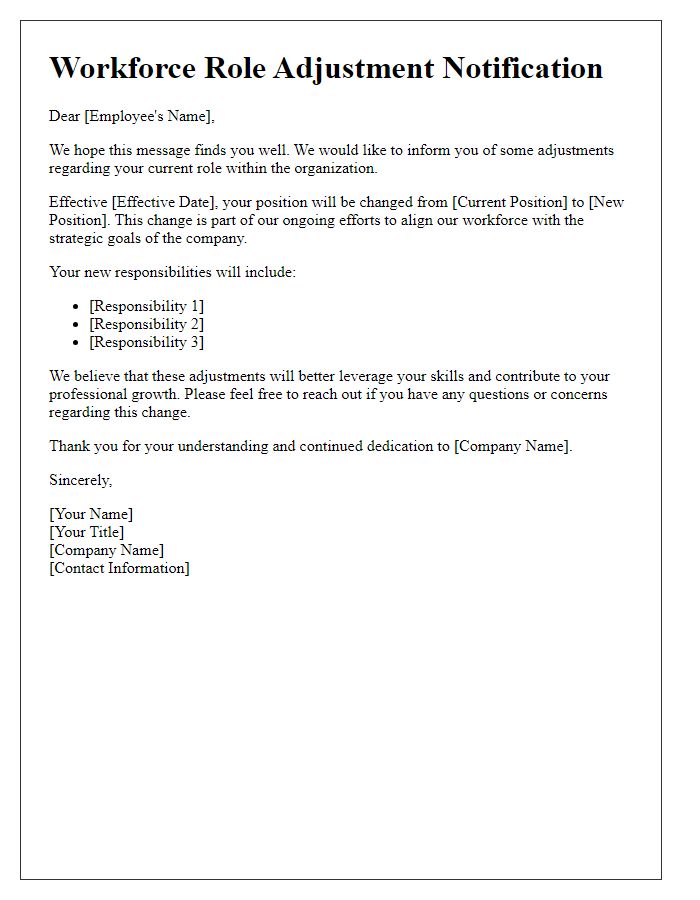
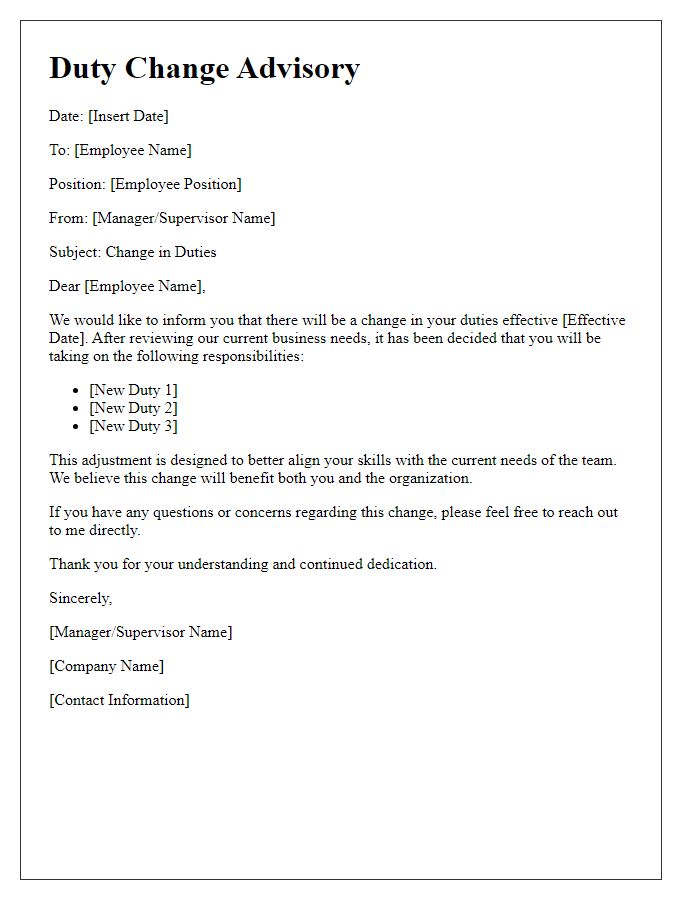
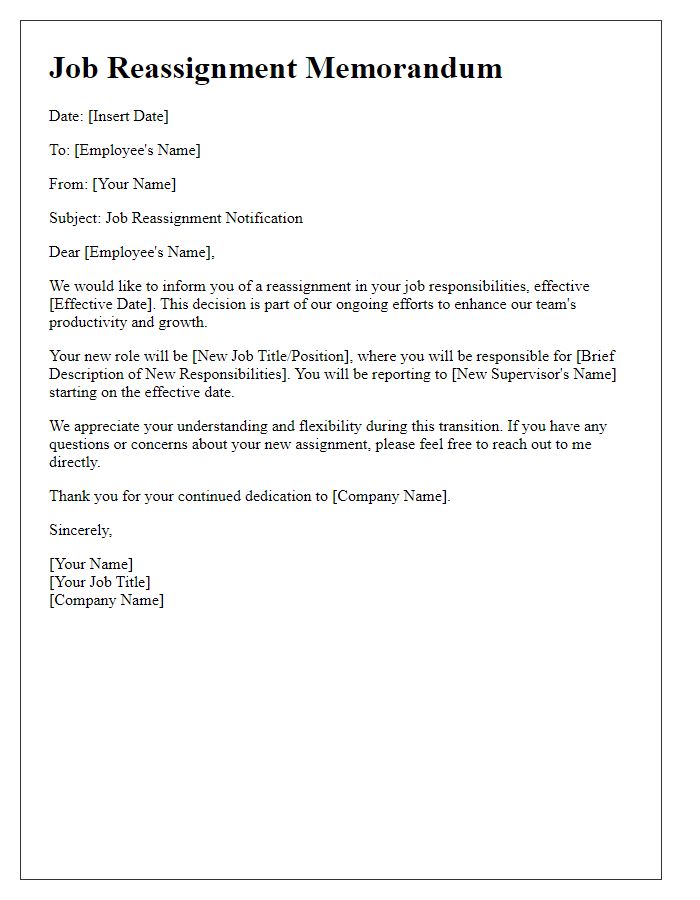
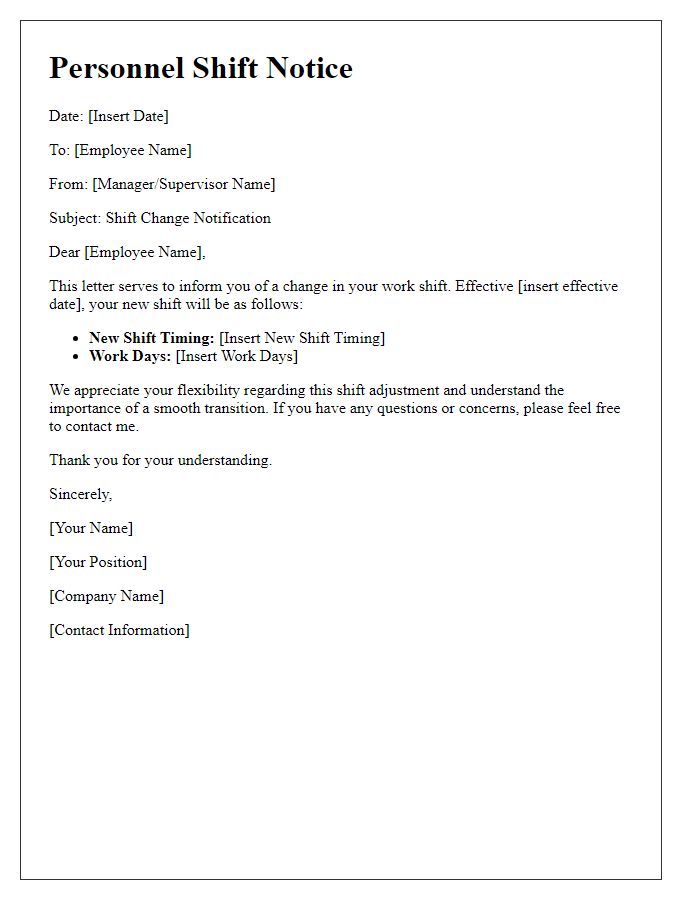
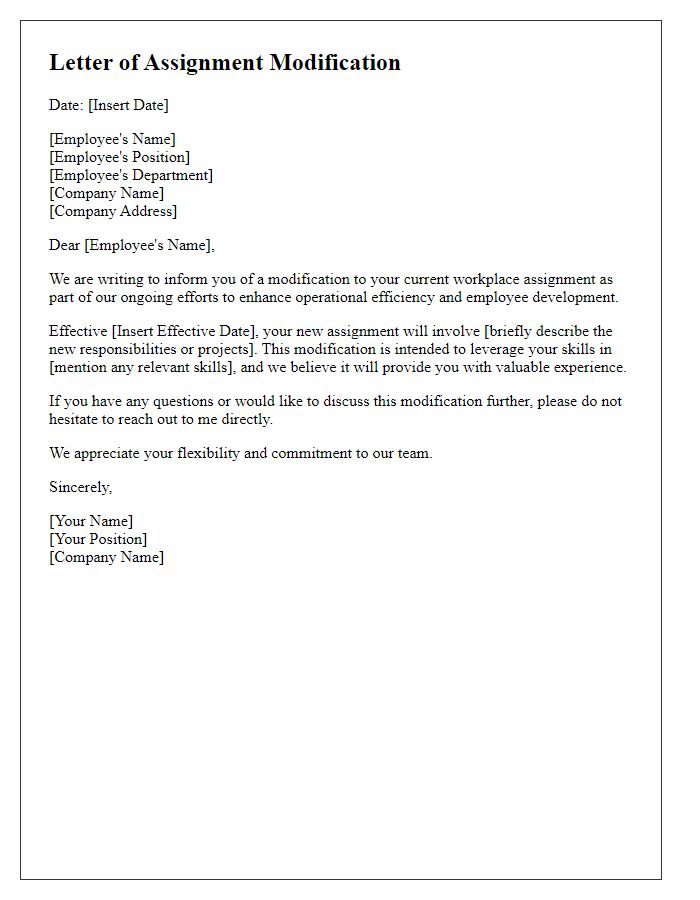
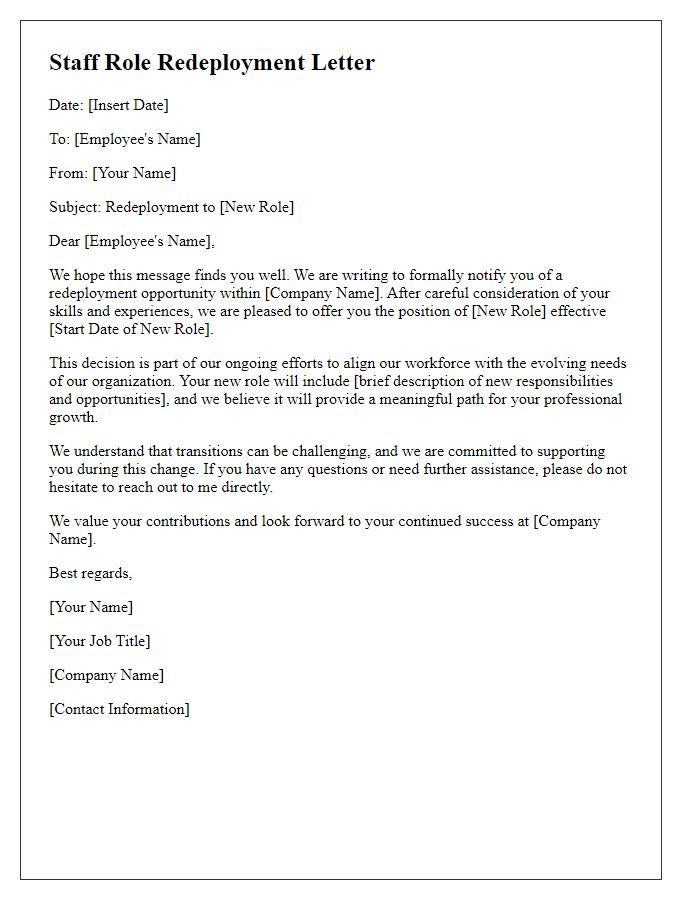
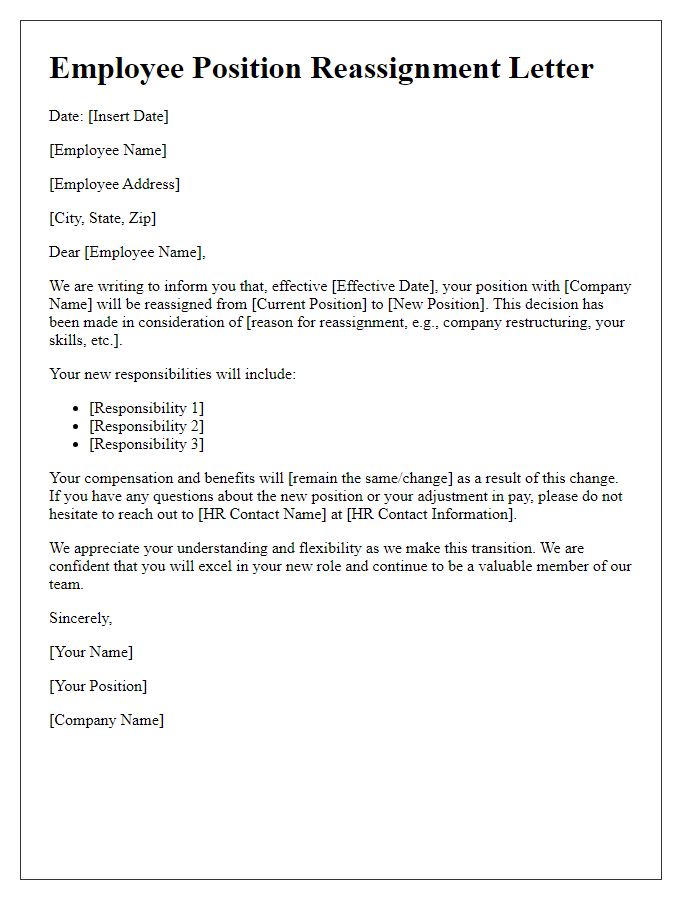

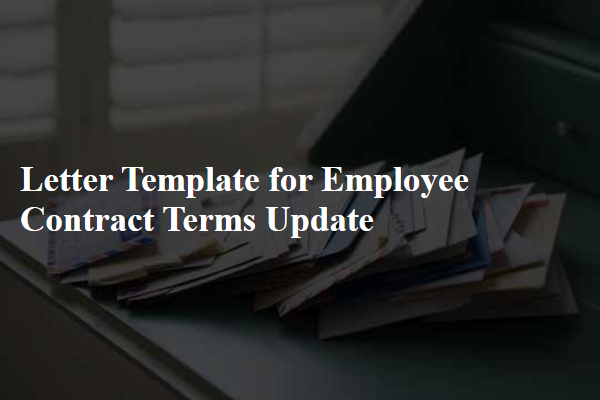
Comments